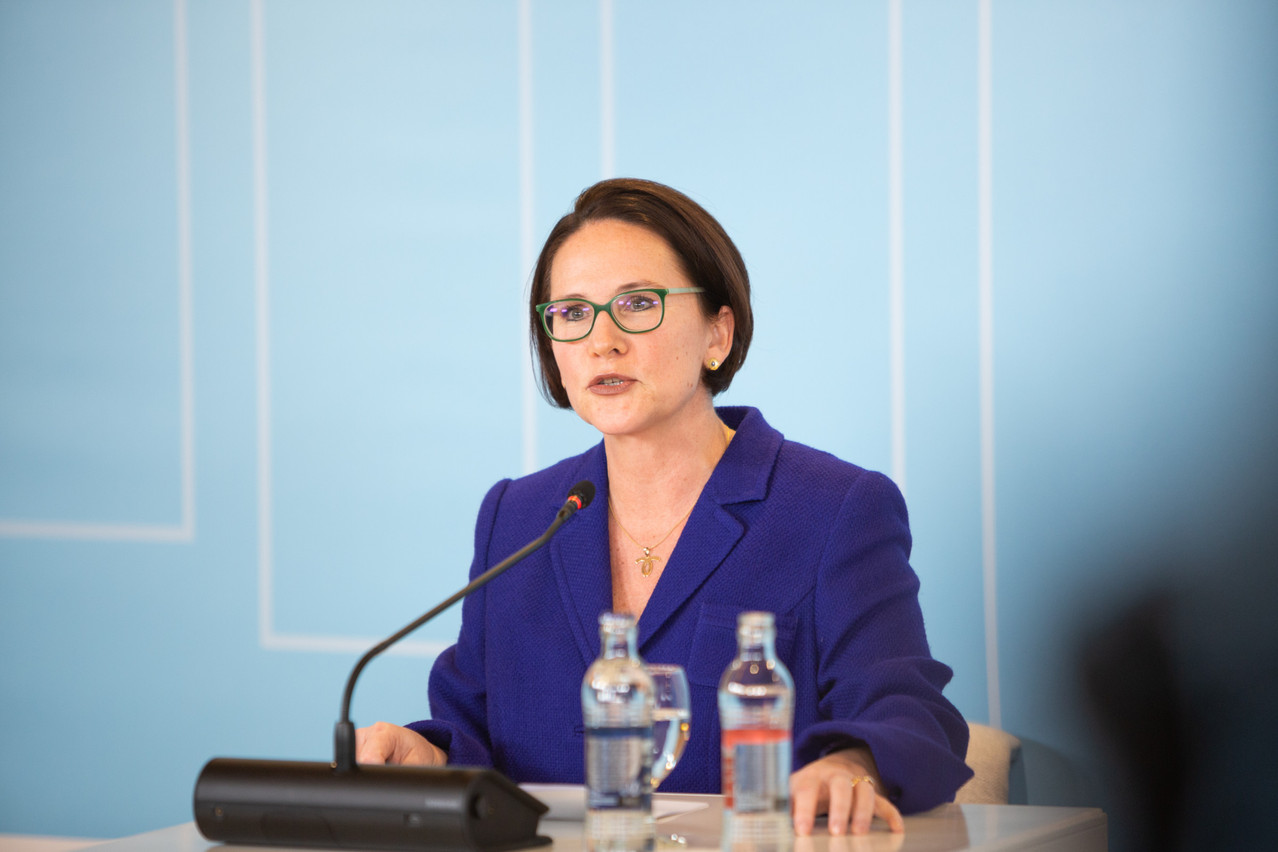The overhaul of the rules governing international taxation conducted within the OECD, including the standardisation of tax thresholds, remains one of the most eagerly awaited issues in 2022, but not without some fears.
This is a resounding and complex issue where Luxembourg must show solidarity, while defending its interests, competitiveness and expertise. Appointed minister of finance and sworn in on 5 January, (DP) made her first official appearance on this subject at a conference organised by the UEL at the Chamber of Commerce on Tuesday.
Taking the floor after one of her two predecessors (for the CSV), , she addressed her first greetings to him: "It is a particular honour to be welcomed by you as president of the Chamber of Commerce, and I congratulate you on your new role as president of Eurochambres."
The minister then paid tribute to her predecessor, (DP), whom she thanked "for the fantastic work he has done over the last eight years, for his relevant efforts in favour of our country, our economy and the Luxembourg financial sector. I hope to be a worthy successor."
Before presenting her wishes, the minister apologised for not being able to take the time at the moment, due to the pandemic, to have more face-to-face discussions with the people she will be dealing with in her new position.
An "inevitable and necessary" update
On the subject of tax reform, and by way of introduction to the discussions that followed during the conference, Backes said: "The international tax system was not designed to cope with either globalisation or digitalisation, so updating and modernising the system has become inevitable and necessary."
A tax system for the digital economy at European level is a "missing piece of the puzzle" and is being put in place, observed Backes. She went on to point out that the government has, in recent years, made a major contribution to the global trend towards greater tax transparency and fair taxation of multinational companies. "Luxembourg has always advocated and will continue to advocate for a global level playing field."
"The reform provides a coherent and standardised set of rules within which global tax competition can take place," the finance minister added. This is what we need, and this is what we support. So I would say that the reforms undertaken mark the end of unhealthy tax competition and ensure that international tax competition will become fair."
However, she remained cautious about its effects on competitiveness, adding that it is "difficult to predict how international businesses will react to these new measures. Healthy tax competition will continue, but taxation will necessarily play a reduced role when it comes to the competitiveness of different jurisdictions."
Luxembourg's advantages certainly cannot be reduced to tax aspects alone.
OECD countries are used to reforms, and Backes stressed that, so far, "none of the changes that have occurred in recent years have had a negative impact on the Luxembourg economy or on the financial sector”, she stated. "Luxembourg's advantages can certainly not be reduced to tax aspects alone.”
She concluded her speech with a promise that was as diplomatic as it was political: "As finance minister, I will continue to defend Luxembourg's national interests resolutely and to ensure that the country remains competitive and attractive. Competition, whether between countries or between companies, is healthy and beneficial if it respects common standards, if it is fair and if it promotes sustainable growth."
Originally published in French by and translated for Delano
